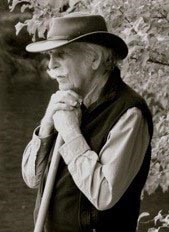Robert H. Webb
Robert H. Webb

Robert H. Webb, OSA Fellow and 1999 Edwin H. Land Medal recipient, was known for his numerous inventions, which accelerated the development of new diagnostic tools to help prevent the loss of sight. While Webb spent some time in academia at Tufts University, the majority of his career was spent with Block Engineering, Schepens Eye Research Institute, and Wellman Laboratory at Massachusetts General Hospital.
Webb was born on 17 October 1934 to Kenneth and Susan Howard Webb, founders of the Farm and Wilderness Camps in Plymouth, Vermont. He spent his childhood exploring the woods and trails of the Green Mountains, cultivating a lifelong love of the outdoors. Webb received his undergraduate degree in physics from Harvard University in 1955, his Ph.D. in physics in 1959 from Rutgers University, and completed a post-doctoral study in molecular physics at Stanford University from 1959-1962. Webb identified himself as an inventor and specifically worked on developing diagnostic medical instrumentation, such as the flow cytometer, the Scanning Laser Ophthalmoscope, the Pneumotonometer, and the Vivascope. Webb was an Associate Professor of Ophthalmology and Dermatology at Harvard Medical School.
Webb was known within the community as a mentor, colleague, collaborator, and peer-reviewer for scientific journals. He was recognized with numerous awards and was made an OSA Fellow in 1991. He authored the textbook, Elementary Wave Optics, published in 1969 and reissued in 2005. In 1999 he received OSA’s Edwin H. Land Medal. Outside of his scientific accomplishments, Webb was an expert skier and enjoyed spending time with family and friends.
Robert H. Webb died on 23 August 2018, please see Optica's memorial entry.
Document Created: 26 July 2023
Last Updated: 28 August 2023
